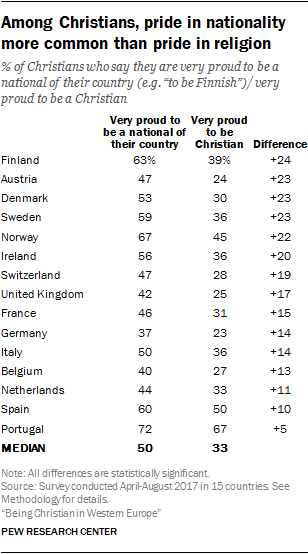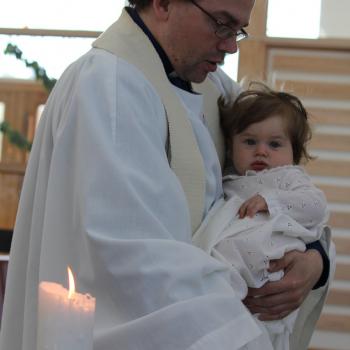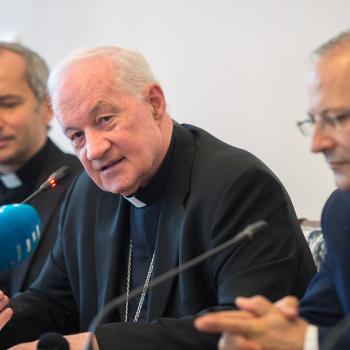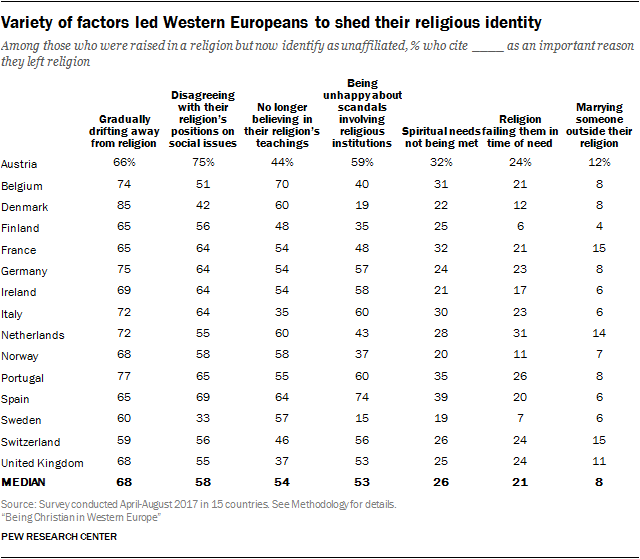
To continue with the series we started on Monday, more today on the political implications of Pew Research Center’s finding that Europe’s Christians are still in the majority on the continent, even if they attend Church less and less.
4. 64% of all European citizens in favor of the separation of Church and State
On the question of the relationship Europeans desire between Church and State, 64% of all the adults surveyed by Pew say religion should be kept separate from government policies, compared to 36% who think that government policies should support religious values and beliefs. The number of those in favor of a clear separation between politics and religion increases to 76% in Protestant-majority countries, compared to 56% in Catholic-majority ones.
Among nones and Christians, the trends are unsurprising. 82% of the religiously-unaffiliated are in favor of the separation of Church and State, as are 66% of minimally-committed, 55% of moderately-committed and 39% of highly-committed Christians.
5. Christians more likely than nones to favor a reduction in immigration levels
43% of Western Europeans believe that immigration levels should stay as they are, compared with 38% who favor a reduction and 11% who favor an increase. The numbers of both Church-going and non-Church-going Christians who think the number of immigrants arriving to their countries should go down are much the same as those among the general population – at 40% and 37% respectively – compared to 28% among the religiously unaffiliated.
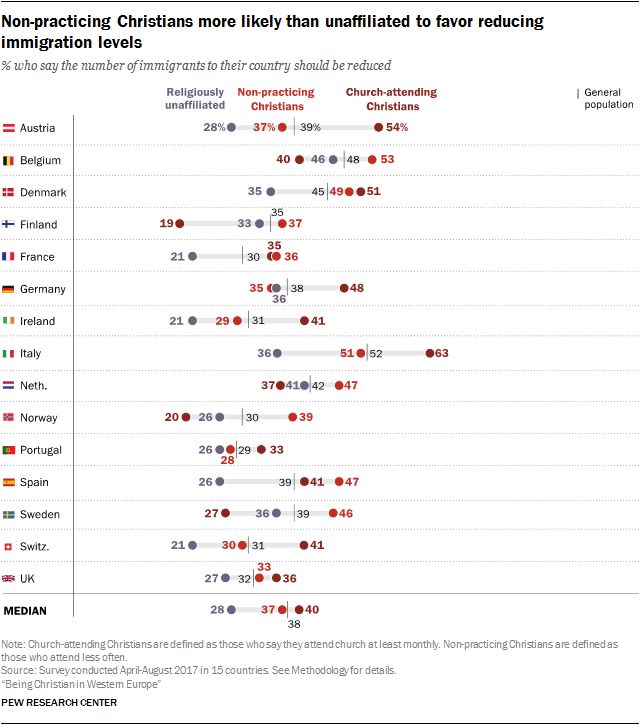
6. Most Europeans know “not too much” about Islam and Judaism
While most people in Western Europe say they know either “some” or a “great deal” about Christianity, majorities in the countries surveyed affirm too that they know “not too much” or “nothing at all” about Islam (63%) and Judaism (67%). This ignorance perhaps explains why 42% of Europeans say Islam is fundamentally incompatible with their national culture and values: a proportion that grows to 49% and 45% respectively among practising and non-practising Christians.
7. European Christians prouder of their nationality than of their religion
Another key finding of the Pew survey is that European Christians are more likely to be “very proud” of their nationality (50% overall) than they are of their religion (33%). 45% of all respondents either completely or mostly agree with the statement “our people are not perfect, but our culture is superior to others”: a number that increases to 48% of non-Church-going Christians and to 54% among Church-going ones, compared to just 25% of people who claim no particular religious identity.
72% of practising Christians and 52% of non-practising ones believe family background is either very or somewhat important in order to claim a national identity, compared to 53% of the general population and 42% of nones.
8. Christians more likely to participate in community or charity groups
This Christian nationalism in Western Europe maps into Pew’s finding that Christian religious observance is connected with civic participation. Moderately- (19%) and highly-committed Christians (28%) are more likely to participate in community groups than the religiously unaffiliated (18%), for example, to participate in a community group. The same is true of participation in a charitable organization, with highly-committed Christians (28%) twice as likely to volunteer than nones (14%).
